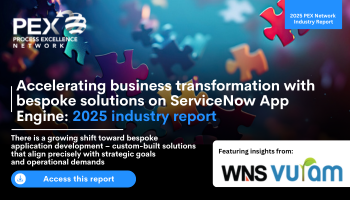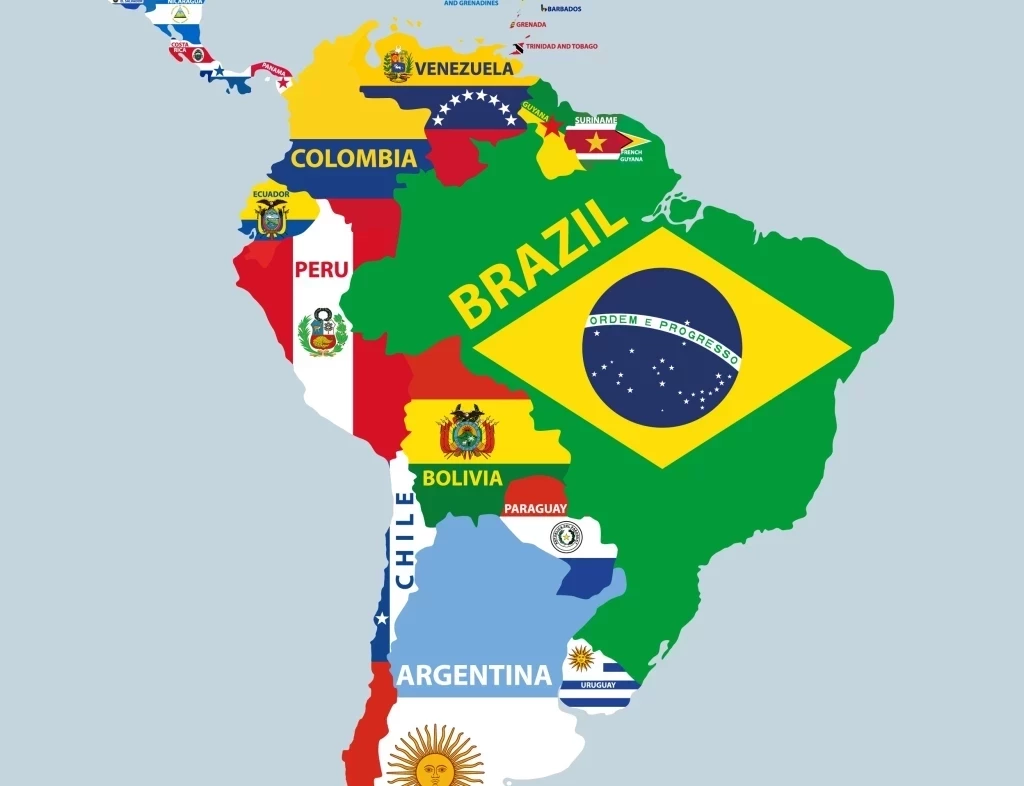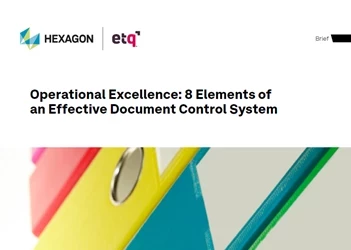How operational excellence is enhanced by diversity
Studies show a clear correlation between diversity and business performance
Add bookmark
Operational excellence (OPEX) is high on the agenda for businesses across sectors. It’s an approach that aims to make an organization’s processes more efficient to ensure customers’ expectations are met and operations continually improve.
There are several factors that contribute to OPEX in organizations. While some are heavily technology or budget-focused, others align far more with culture and people. One element that can have significant impact on the OPEX of a business is diversity – more specifically, diverse thinking and thought processes.
READ: 5 operational excellence trends for 2024
“Several studies have shown a correlation between diversity in the business and performance – with benefits seen in process improvement, innovation, operations and underlying profit” Waseem Ali, former chief data officer at Lloyd’s of London and current CEO of Rockborne, a program focused on bringing diverse talent into the data industry, tells PEX Network.
Diverse teams are more productive, make better decisions and perform better in a crisis as you have people from different perspectives, which brings different ideas, adds Mo Kanjilal Williams, author and co-creator of diversity and inclusion company Watch This Sp_ce. “Diverse teams debate more options, so there might be disagreements, but then they come to making quicker and more resilient decisions.”
Diversity of thought is absolutely vital in OPEX, says Peter Evans, OPEX consultant and trainer, PEX Network Advisory Board member. “I have seen so many organizations where all I see is sheep-like behavior where everyone follows the lead of the sheep in front, uses the same words and language and are fearful of breaking rank.” Organizations that encourage diversity of thought and open experiments, change more rapidly (and freely), he adds. “They build good habits, like listening, taking calculated risks, learning from each other and building resilience.”
Here are three ways diversity of thought can enhance OPEX and how.
Improved ways of working
A basic but key component of OPEX is process efficiency. Despite technology’s ever-increasing role in process effectiveness (cue generative AI), people remain central to the equation. “If there is an understanding of diverse thinking, appreciating the fact that people bring different perspectives and work and think in different ways, then there is less focus on trying to enforce ways of working that do not suit everyone,” Kanjilal Williams says.
Greater diversity means that organizations can enable people to work in the ways that work best for them, which enhances productivity, she adds. “Show people what the overall mission, vision and goals are, and then let them work out the best and most efficient way to do things instead of forcing people into what works for some but not for others.” Kanjilal Williams points out that innovation is 19 percent higher in diverse teams, as is better decision-making (87 percent) and productivity (25 percent).
In a business and operations setting this is crucial, says Ali. “It’s easy to become blinkered into thinking that your method is the only way, but processes need to be scrutinized from all angles to ensure that the optimum approach has been found.” The same goes for facing an operational issue. “If everyone is coming at that problem from a similar perspective, you are going to run out of new solutions pretty quickly.”
Diversity of thought brings out-of-the-box ideas to the table, making it easier to tackle tricky issues and come up with innovative ways to improve processes, says Kate Kurdizej, founder of Olivier Consultancy. “If we embrace diverse thinking when working in operations, we can come up with more innovative, flexible and creative ideas, ensuring that our processes not only meet but exceed the needs of our users in the ever-changing digital landscape.”
READ: Process intelligence for operational excellence: 2024 industry report
Enhanced decision making
Diversifying the workforce also helps to foster an environment where good business decisions are more likely to be made, Ali says. “When leaders are trying to make key decisions, they want all the “data” and facts at their disposal to help to inform that decision. If the opinions or perspectives of their team is in fact the data they are using, then gathering this from a diverse range of individuals will help the business leader in their decision.”
It’s hugely beneficial to cultivate an “open ear” policy where you listen and appreciate the breadth of backgrounds, experiences and views of those around you, he adds. “This openness has been embedded into our [Rockborne] everyday practices, through a conscious effort, and helps to inform the leadership team’s decision-making.”
Having a diverse leadership team is also crucial, Ali says. “This is hugely valuable in areas such as brand reputation. Whilst everyone makes mistakes, imagine being able to avoid those pitfalls in the first place, by anticipating what problems consumers might have with the offering.”
Reflection of the consumer base
For a business to appeal to the biggest marketplaces, their teams need to represent the breadth of the client pool, Ali says. “If 15 to 20 per cent of the population identify as neurologically diverse (for example) and you don’t have anyone in your workforce representing this group of people’s perspectives, you are automatically cutting down the pool of customers that you are addressing.”
By building a workforce that reflects your consumer base, you will help to ensure that any products, services or communications you release are inclusive and appealing to all, he adds. “This is, of course, often easier said than done, and may not always be possible, but if businesses are able to strive towards this ideal, any progress made towards achieving it will be extremely beneficial.”
How to foster a culture of diversity
Businesses looking to reach more diverse talent should start by examining their hiring strategies, Ali says. “Employers tend to gravitate towards those of a certain educational “ilk” without considering whether this background is required to carry out the role effectively.”
Many continue to operate on the belief that only science, technology, engineering and mathematics (STEM) individuals can become top technology professionals (for example), but non-STEM degree holders and those from lower socio-economic backgrounds can offer new approaches and can still be trained to become just as technically capable as their STEM counterparts, Ali adds.
“On top of this, employers often carry out lengthy recruitment processes because it is what they have always done, without considering if it’s needed or the impact it might be having on the diversity of their workforce.” Employers need to challenge themselves by asking if they really need seven interviews for a role, Ali says. “If a candidate is already feeling “underqualified” the prospect of enduring a complex and lengthy process might be intimidating enough to result in them dropping out of the race. We also know that neurodiverse candidates struggle with lengthy testing processes, surprise elements and psychometrics. At Rockborne, we try to be very clear about what the process will be and give people plenty of time and information to prepare for every step.’
Business leaders need to engage with a diverse range of people to improve the diversity of their workforce. “Why not speak to different individuals about why they would or wouldn’t apply for a job at your company? Companies should never shy away from these conversations, or from highlighting their failures if they want to create sustainable growth,” Ali says.
Accelerating business transformation with bespoke solutions on ServiceNow App Engine

Today, off-the-shelf software solutions offer diverse features that enable vast opportunities to implement and maintain business transformation. However, in some circumstances, capabilities lack the flexibility and specificity required to address the unique challenges and workflows of individual organizations. As a result, there is a growing shift toward bespoke application development – custom-built solutions that align precisely with strategic goals and operational demands.
Download this report to explore how enterprises can harness the power of custom applications to drive meaningful transformation. With the growing adoption of low-code platforms like ServiceNow App Engine, organizations are building custom applications faster and with greater control. By empowering both IT professionals and citizen developers to build tailored solutions, organizations can significantly reduce time to value while maintaining control over quality and compliance.
Download Now























